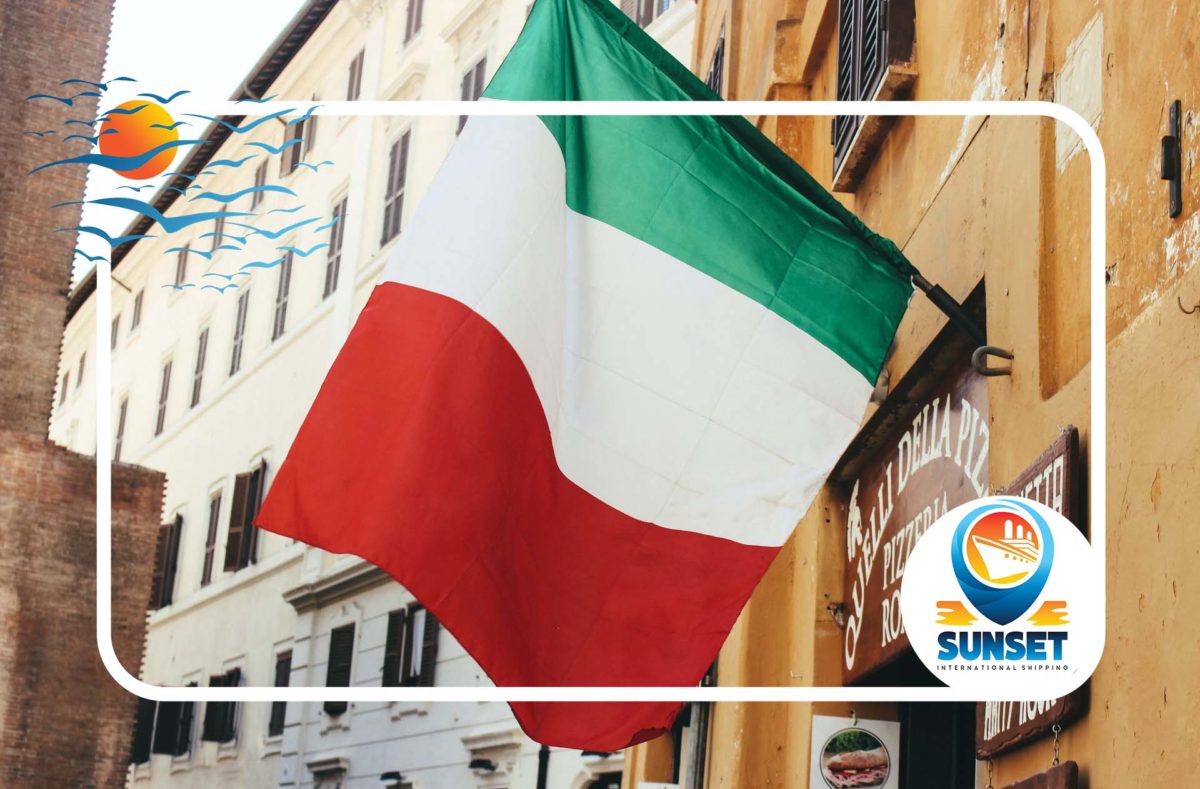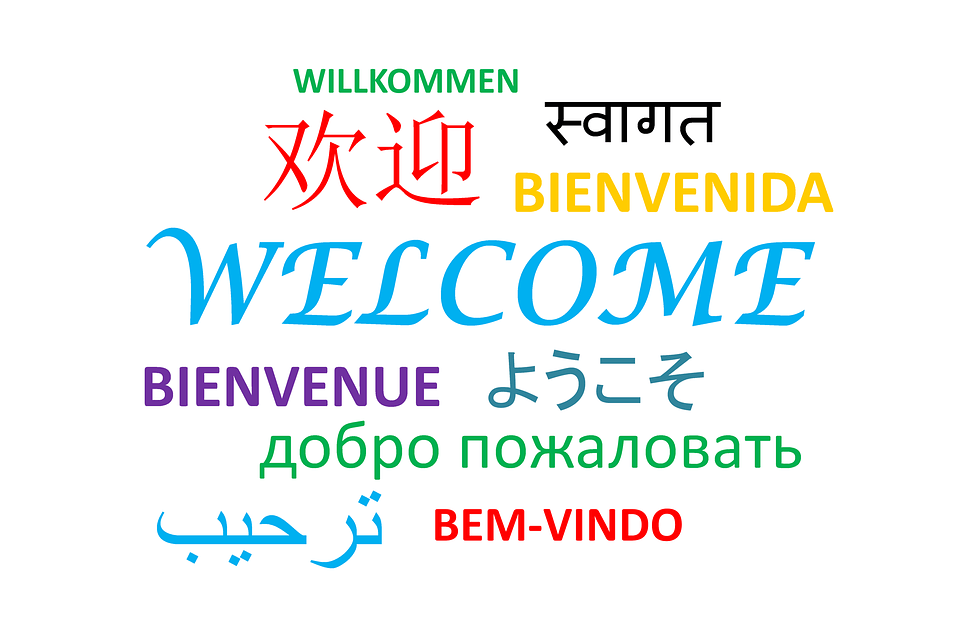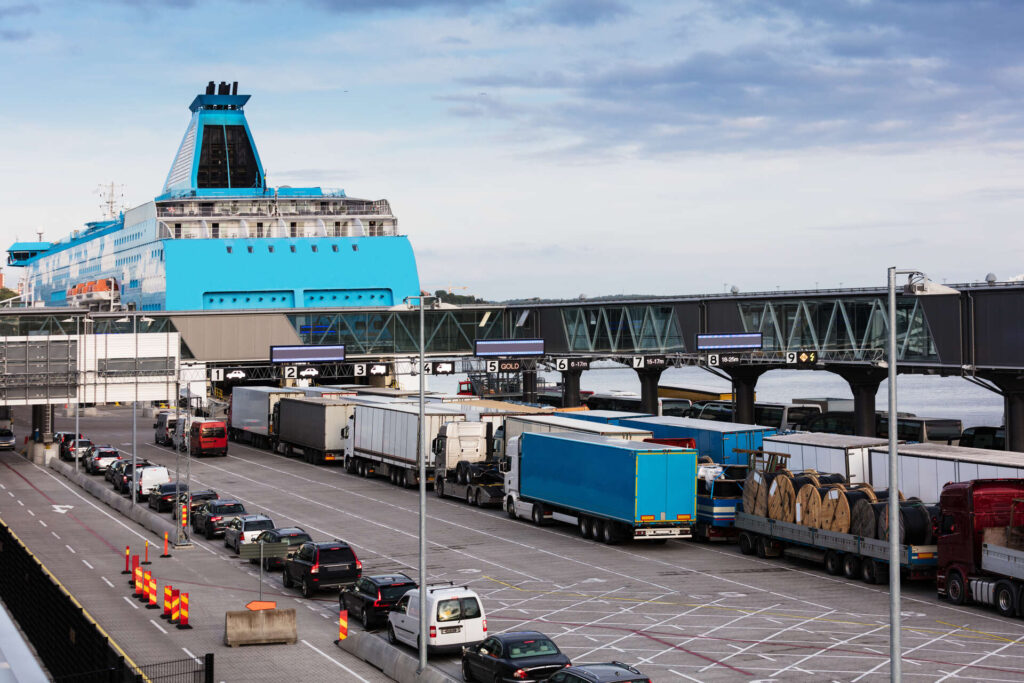You have been dreaming of romantic surroundings where you can enjoy amazing food, and even better wine, and immerse yourself in art and culture. In other words, you’ve been dreaming of moving to Italy.


While all that sounds beautiful and romantic, there’s a less dreamy process to handle first – the actual relocation. Before you get to enjoy all the beauty that it boasts, you need to plan the process of relocating overseas, find out all the steps that should be taken, and prepare yourself for what life there looks like.
There is a series of questions you’d want answers to, including Can a US citizen move to Italy? Is life there expensive? How long do you have to live there to become a citizen? It is normal to have doubts and concerns when taking such a huge step in your life. We want to help you out by answering these and many other questions that might be running through your head. Here are the things you should keep in mind when relocating to Italy and what to expect upon your arrival.
Know About Visas, Work Permits, and Residence Before Employing an Overseas Shipping Company
Before you make any plans for your new life, you should be sure you have the documents you need when relocating internationally. The first thing to learn about the bureaucracy there is that there might be some hiccups during almost every process, no matter how well prepared you as an applicant are.
Different Procedures for EU and Non-EU Citizens
While EU citizens are free to just come to work, study, and live there without any permits required, non-EU citizens have to deal with a couple of steps first.
When moving to Italy with a dog, it is important to understand the requirements and procedures for bringing your pet into the country. In general, all dogs must have an EU pet passport, a valid rabies vaccination certificate, and an up-to-date flea/tick treatment record. Pet owners should also ensure their dog’s microchip details are registered with the relevant authorities prior to travel. Additionally, depending on where in Italy you are moving to, there may be additional regulations or restrictions that apply.
An American Moving to Italy Should Know About Visas and Work Permits
When it comes to the visa application for all Americans moving to Italy, the process starts while you’re still in your current place of residence. Depending on the type of visa you’re applying for, you’ll be required to pay different fees, but in any case, the costs will be around 116 EUR ($127).
Different types of visas you can apply for here include seasonal work, long-term seasonal work, artistic work, scientific research, as well as independent work, etc. As a US citizen, you don’t need a visa to cross the border, but only if you won’t stay there for longer than 90 days.
As for the work permits, you don’t have to fill out an application form, you should just provide your future employer with the following documents:
- A copy of your ID or passport,
- The residence contract,
- Proof of accommodation,
- Proof of sufficient means for returning home.
Temporary and Permanent Residence When Moving to Italy From the US
If you’re planning to stay for longer than three months, you’re supposed to apply for a residence permit eight days upon your arrival. To do so, you need the following:
- Application form
- Passport
- Corresponding visa
- Four passport-size photos
- The residence contract
A temporary residence permit usually lasts for as long as your work permit does, so keep this in mind if you’re moving to Italy as an American.
When it comes to permanent residence permit, you can apply for one after you’ve spent five years living in Italy. The process of applying for permanent residence is somewhat more intricate, as you’ll be required to submit the following:
- Application form
- A copy of your passport
- Certificate of residency
- Registration certificates
- Police records
- Proof of sufficient income
- A photocopy of income tax return
To become a permanent resident, you will also have to pass the Italian language test.
Things to Know Before Moving to Italy – Is English Enough or Do You Have to Learn Italian?
Speaking of the language, let’s shed some light on the language barrier. Namely, you can do well with English only, but that’s just a start. Generally speaking, the people there do speak some English, but that doesn’t mean that you shouldn’t put some effort into learning Italian. It will be much easier to find a proper job that way, plus, it will save you from many misunderstandings due to their poor English. After all, why wouldn’t you want to learn Italian? It’s so romantic and melodic, which makes it easier to learn.


How to Ship Your Goods When Moving to Italy?
When you get everything ready for your departure, there comes a question of how you’re going to ship your stuff to the new address. You should be covered in whatever you find most convenient due to the excellent geographical location.
So, depending on what’s better for you, you can choose between international moving by sea and more swift international moving by air. Even if you want to ship your car, too, that won’t be a problem. If you plan on moving to Italy from the US with a car, you can arrange safe and efficient overseas vehicle shipping and get your four-wheeler anywhere you want. Just make sure you find a reputable overseas moving company.
Finding a Home Won’t Be That Hard After Relocating With an International Moving Company
Finding accommodation after moving overseas shouldn’t be that difficult, especially when it comes to short-term rentals. People usually look through online ads, but if you’ll feel safer, it might be a good idea to turn to real estate agents to give you a hand, especially if you still don’t speak the language.
Since the demand for both apartments and houses is higher in big cities, it might be easier to find your dream home somewhere in the countryside, or at least in some of the smaller towns. It’s an idea worth considering, at least.


But Finding a Job Would Be Tricky
When it comes to finding a job in Italy after moving internationally, it might be a tricky one. Depending on your field of expertise, you might be required to speak Italian to get the job, and you are required to have one in order to apply for a visa, to start with.
With the unemployment rate of 9.9%, this might not be an ideal place to find a job without any difficulties, but it is possible to land a decent job and at least make a living for your first months there. The average salary is around $2,000. Your chances are the highest if you’re looking for a job in the industrial sector and if you stick to the northern part, as it produces as much as 75% of the country’s wealth.


Cost of Living Depends on the Place You Choose
The cost of living can be rather high if you choose one of the major cities such as Rome, Florence, or Milan. If you go there, you’ll spend almost as much as you’d spend in New York.
Compared to the US, rent is cheaper, as you can rent a one-bedroom apartment for $800-$900. But again, if you stick to the center of a big city, this number is likely to go as high as $1,500. In a small town, people spend about $600 for rent per month. In case you’re interested in buying a house, the average price per square meter is about $1,900-$2,100.
When it comes to the cost of food, you don’t have to pay much when you’re buying local food. Keep in mind, though, that imported products are quite pricey. To eat out, you’ll pay about $15 for lunch, while dinner for two will probably be around $50-$80.
You might be somewhat surprised at the price of fuel, as you’ll need about $7 for a gallon of gas. In case you opt for public transportation, a monthly pass will cost you about $40.
If you can’t afford to live in a big city, you don’t have to give up on the idea of relocating here – you can move to the countryside. The cost of living in the countryside is significantly lower in all aspects, starting with housing. However, if you decide to relocate there, keep in mind that it will also be more difficult to find a job than it would be in any larger place.


What Are the Most Popular Cities to Live In?
If you don’t want to move to the countryside, not even for the lower costs, you have a variety of amazing big cities to choose from. Wherever you choose to go eventually, you won’t make a mistake, as every city has a lot to offer, and each has its own specific charm and rich history to make it worth considering. Here are some of the most popular cities to keep in mind:
- Bolzano
- Trento
- Belluno
- Siena
- Pordenone
- Genoa
- Trieste
Why Should You Move to Italy?
If you’re moving abroad for love, you couldn’t have chosen a more romantic place. If, however, you’re going with your family and you’re moving with kids, there will be various excellent opportunities for their education. People there are kind, friendly, and laid-back, and they know how to enjoy life.
In case you’re still having second thoughts about your relocation and shipping overseas, let us mention some more reasons why it would be a good idea to make this beautiful place your new home.


If You Like Warm Weather – We’ve Got Some Good News
Italy experiences a Mediterranean climate, which means you can enjoy warm summers and mostly mild winters, depending on where exactly you choose to relocate. If you like skiing, the Alps are sure to keep you satisfied during the cold months. If you’re looking for a hot summer and breathtaking beaches, head to the south – at least for a vacation if not to live there.
Italian Cuisine
In addition to pleasant weather, you also get to enjoy rich cuisine. We’re sure you already like Italian food, now imagine those gastronomical delights prepared by Italians themselves. They are proud of their culinary tradition for a reason, and they put much effort into preserving it.
Art and Culture
From museums and galleries to magnificent pieces of art on every street corner, this country is all about art, history, and culture. Everywhere you look, you’re sure to discover something marvelous worth great respect and admiration.
Italy’s Vibrant Nightlife
Finally, you can enjoy the exciting and vibrant nightlife here, primarily in big cities such as Rome, Milan, Naples, and so on. People stay in bars until early morning hours or go to concerts in the open – there are all kinds of events to enjoy the nightlife scene there.
Ready to Go?
Do you like the idea of living in Italy? You can’t wait to get there? Remember that you can always speed up the process if you leave it to experts to provide you with packing services and bring all the necessary boxes and packing supplies. You should take the time needed to read more about the visa requirements and prepare all the documents to make your move possible and let experts handle the relocation process.
FAQ
When moving to Italy, it is important to understand the requirements and procedures for bringing your belongings into the country. In general, all individuals must have a valid passport and a visa (if necessary). Additionally, depending on where in Italy you are moving to, there may be additional regulations or restrictions that apply. For example, some regions may require a permit for certain types of goods or forbid their import altogether. It is advisable to research the specific requirements for your destination before packing your belongings.
There are several different options available for finding housing in Italy. One option is to look for rental properties online, either through real estate websites or specialized rental websites. Alternatively, you can contact a real estate agent directly and they can help you find an appropriate rental property. If you prefer to buy a home in Italy, you should contact a local real estate agent who specializes in the area. Additionally, if you are relocating to Italy for work purposes, your employer may provide assistance in finding suitable housing.
The cost of living in Italy varies depending on the region and city you are planning to live in. Generally speaking, cities like Rome, Milan, and Naples tend to be more expensive than smaller towns or rural areas. Additionally, housing costs can significantly affect your total cost of living as they typically make up a large portion of a person’s expenses. To get an idea of the cost of living in Italy, it is recommended to research prices for common items such as groceries, utilities, transportation, restaurants, and entertainment.
Navigating the public transportation system in Italy is relatively easy, as most cities and towns have comprehensive networks of buses, trams, and trains. Most modes of public transport accept contactless payment cards and allow you to buy tickets online or at kiosks. Additionally, apps such as MyCicero make it easy to find timetables and plan your route. To make sure you get the best value for money, consider investing in an unlimited travel pass or a local tourist card which allows you access to different parts of the city for a set period of time.
Italy is home to a range of vibrant and interesting neighborhoods for people looking to live there. If you’re looking for bustling city life, then Naples, Rome and Milan should be top of your list. For smaller towns, the north eastern part of Italy is home to a number of picturesque villages such as Asolo, Orvieto and Cortina d’Ampezzo. Alternatively, if you’re looking for somewhere with plenty of natural beauty, then Puglia in the south or the lake region around Como are great choices.
Healthcare in Italy is available to both residents and non-residents, with the same standards of quality being applied to both groups. Non-residents are required to have an appropriate visa or residence permit in order to access healthcare services. All public health services are provided free of charge for residents, though charges may be applied for certain treatments depending on the individual’s financial circumstances. Private healthcare is also available and most private insurance companies provide coverage for their customers in Italy too.
Visas are required for those wishing to move to Italy, depending on the length of time you will be staying. Citizens of the EU/EEA or Switzerland do not need a visa to live in Italy, but they must register with their local police station within eight days of arrival. Non-EU citizens usually require a Schengen visa, an Entry Visa, or a Long Stay Visa in order to move to Italy. Additionally, some non-EU nationals may require a work permit if they intend to stay and work in the country. It’s important to check your specific visa requirements prior to arrival in Italy.
The job market in Italy is quite diverse and caters to both highly skilled and unskilled professionals. Highly skilled professionals are in demand across the country, especially within the technology sector. Unskilled professionals can find work in various blue-collar industries, although wages tend to be lower than those of highly-skilled workers. Additionally, the hospitality and tourism sector is a popular choice for foreigners looking for work in Italy, as it offers flexible hours along with high wages.
Italy is a country steeped in cultural heritage, with each region within the country having its own unique customs and traditions. For example, Roman Catholicism plays an important role in the culture of Italy, with some areas celebrating religious festivals and events throughout the year. Additionally, Italian culture celebrates family life and strongly emphasizes collective responsibility to family members. Social activities such as attending the opera or theatre are also important parts of Italian culture and often involve dressing up formally for the occasion.
Learning Italian is essential for anyone considering living in Italy, and there are a number of different options available to help you do this. Taking language classes from Italian schools or universities is one option, as they teach the language using an interactive approach that immerses you in the culture of Italy. Alternatively, you could take private lessons from a professional Italian tutor or visit language-learning websites that offer instruction in Italian. Additionally, many cities have local meetups where native Italians hold conversation sessions with learners of the language, which can be a great way to learn more about the culture as well as pick up new vocabulary.









